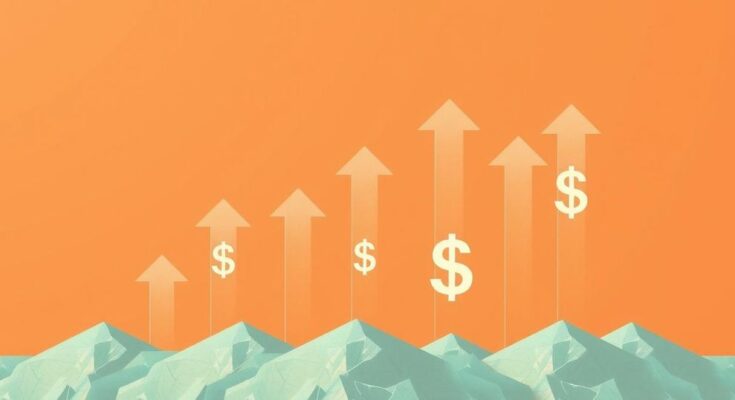A Reuters poll indicates Argentina’s inflation rate may rise to 2.4% in February, above January’s 2.2%. Despite government efforts, inflation remains a critical issue, having previously peaked substantially. The foundation Libertad y Progreso and other analysts suggest continued pressure in March due to seasonal factors.
Argentina’s inflation is anticipated to increase slightly in February, surpassing the January figure, according to a Reuters poll of analysts conducted prior to the upcoming data release. The consumer price index (CPI) is projected to rise by 2.4%, compared to a 2.2% increase in January, based on the median estimate from 24 analysts.
In dealing with soaring inflation rates, Argentina—an essential grains supplier and emerging energy producer—has faced persistent triple-digit inflation, making it the country with the highest annual inflation rate globally. While this rate approached 300% early last year, it has since decreased, concluding 2024 at 118%. Monthly inflation, which had peaked at around 25% in December 2023, has recently stabilized within a 2%-3% range since October 2024.
According to consulting firm Eco Go, the government’s objective to fit inflation below 2% remains unfulfilled, with potential acceleration in February’s inflation rate. The firm cited various measures undertaken by the government to manage inflation, including reducing the crawling peg to 1% and moderating tariff updates, although these efforts have yielded limited results.
A Market Expectations Survey (REM) executed by Argentina’s central bank (BCRA) predicts a 2.3% inflation rate for February, with expectations of 2% for March. The foundation Libertad y Progreso (LyP) observed that CPI increases were initially below January’s rates in early February, leading to hopes for inflation slowdown. However, they noted that prices surged in the latter half of the month, particularly for food and non-alcoholic beverages, notably meat.
Analysts expect a slight acceleration in inflation come March, noting that despite a trend of decline, seasonal pressures may arise from the beginning of the school year and heightened activity in key sectors, which could impact pricing. According to economist Clara Alesina of LyP, “Despite the downward trend (of the CPI), a slowdown is not expected in March.”
In summary, Argentina is poised to experience a minor inflation increase in February, as indicated by analyst forecasts. The CPI is expected to rise to 2.4%, slightly higher than January’s figure, amidst ongoing efforts to manage inflation which remains significantly high. Analysts anticipate continued inflationary pressures in March due to seasonal factors, emphasizing the complexity of Argentina’s economic landscape.
Original Source: www.marketscreener.com




